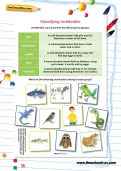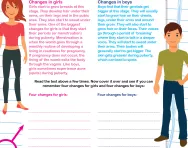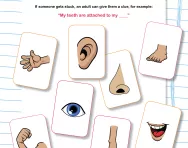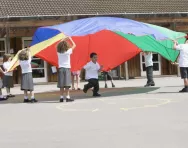Important update from TheSchoolRun
For the past 13 years, TheSchoolRun has been run by a small team of mums working from home, dedicated to providing quality educational resources to primary school parents. Unfortunately, rising supplier costs and falling revenue have made it impossible for us to continue operating, and we’ve had to make the difficult decision to close. The good news: We’ve arranged for another educational provider to take over many of our resources. These will be hosted on a new portal, where the content will be updated and expanded to support your child’s learning.
What this means for subscribers:
- Your subscription is still active, and for now, you can keep using the website as normal — just log in with your usual details to access all our articles and resources*.
- In a few months, all resources will move to the new portal. You’ll continue to have access there until your subscription ends. We’ll send you full details nearer the time.
- As a thank you for your support, we’ll also be sending you 16 primary school eBooks (worth £108.84) to download and keep.
A few changes to be aware of:
- The Learning Journey weekly email has ended, but your child’s plan will still be updated on your dashboard each Monday. Just log in to see the recommended worksheets.
- The 11+ weekly emails have now ended. We sent you all the remaining emails in the series at the end of March — please check your inbox (and spam folder) if you haven’t seen them. You can also follow the full programme here: 11+ Learning Journey.
If you have any questions, please contact us at [email protected]. Thank you for being part of our journey it’s been a privilege to support your family’s learning.
*If you need to reset your password, it will still work as usual. Please check your spam folder if the reset email doesn’t appear in your inbox.
Top tips on talking to your kids about the birds and the bees

Growing up with an awareness of the facts of life can help your child in years to come. Although it is tempting to avoid the subject, the way you handle talking about sex can affect how your child feels about it for the rest of their life.
“If you don’t answer your children’s questions about sex, they will think there is something wrong with them for asking,” explains Suzie Hayman, a counsellor and spokesperson for parenting charity Parentline Plus. “This can lead to future problems with body image, self-esteem and relationships.”


Download fantastic science resources today!
- Experiments And Science Fun pack
- Science Learning Programme for each school year
- All the instructions, questions and information you need
Why is it so important?
In the UK we have the highest rate of teenage pregnancy in Western Europe and young adults aged between 16 to 24 account for over half of STI diagnoses. So we clearly need to be teaching our children more about sex.
It is best not to rely on your children learning about sex at school, as it’s only compulsory to teach the basic biological facts, and each school decides whether to cover the subject in any more detail or not. So it’s up to parents to make sure their children are getting the facts and not just learning about sex from playground gossip.
“Educating your children about sex is very important and the earlier you start the better,” says Rebecca Findlay from the Family Planning Association (FPA).
“By the time children are eight they should know what sex is, where they came from and the right names for their body parts, for example the penis and vagina. This lays a good foundation for the next stage of growing up,” she adds.
Top tips for talking to your child
- Don’t have a ‘big talk’ about sex. Instead answer questions truthfully as they come up.
- For younger children use books to help explain about sex. A good example is Where Willy Went by Nicholas Allan (£5.99, Random House).
- Use the stories in the news and on TV to kick off chats with older children.
- Don’t worry if you don’t have all the answers – arm yourself with the facts from websites such as www.fpa.org.uk.
- Don’t assume your child will learn about sex at school. Check what they will be taught and support those lessons at home.
- Admit it if you feel embarrassed, but answer questions anyway.
- Use the proper words for body parts and sex, as avoiding them can be confusing and make children feel there’s something to be ashamed of.
- If you can’t answer a question immediately, always answer it later.
- Earlier is better when it comes to talking about sex; the more they learn from you the less misinformation they will pick up later!







